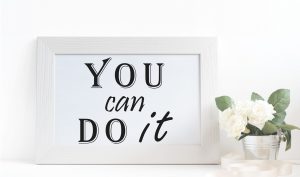5 Summary
Lisa Taylor
Learning Objectives
Learning Objectives
In the previous chapters you learned:
- Who needs to take the FCLE, and when, where, and how to take it (Ch 1)
- How to access the Florida Department of Education’s official online practice items for the FCLE (Ch 2)
- Tips and strategies for taking the exam (Ch 2)
- A method of scoring the practice test that will help direct your studies (Ch 3)
- Resources to use to study the themes presented on the exam (Ch 4)
Look back over previous chapters or reach out to the FSCJ Library and Learning Commons if you still have questions.
Chapter Content
The previous chapters were designed to answer common questions and concerns about taking and passing the Florida Civic Literacy Exam in a single, easy-to-use format. This is not an official study guide; you may also find useful information elsewhere. If you use resources other than the ones in this book, make sure that they are from reliable, credible sources.
In most cases, you cannot receive your college degree without passing the FCLE. Try to complete it as soon as possible. Taking the exam shortly after taking an American History course is an excellent idea. Don’t wait until you’re about to graduate. If you need to take the exam multiple times, it could delay the conferring of your degree.
We strongly suggest taking the online practice test. If you do well on the practice test, you may be able to pass the FCLE on your first try. Each student has a different breadth of knowledge about the history, politics, and government of the United States. Your test preparation timeline will be determined by that knowledge.
Finally, try not to worry if you don’t pass on the first or second attempt. The passing score is 60%, or 48/80 questions. There is no penalty or fee to try again—as many times as needed.
You can do it!

Key Takeaways
Key Takeaways
A few final suggestions:
- Don’t wait until the last minute.
- Take the online practice test as a measure of your existing knowledge.
- Study using credible resources that suit your learning style, e.g., videos, print, flashcards.
- Consider finding a study partner or forming a study group.
Additional Information
The FSCJ Library and Learning Commons is available to help you in person, or via text, email, and chat. Use our Ask Us! feature from any internet-connected device.

